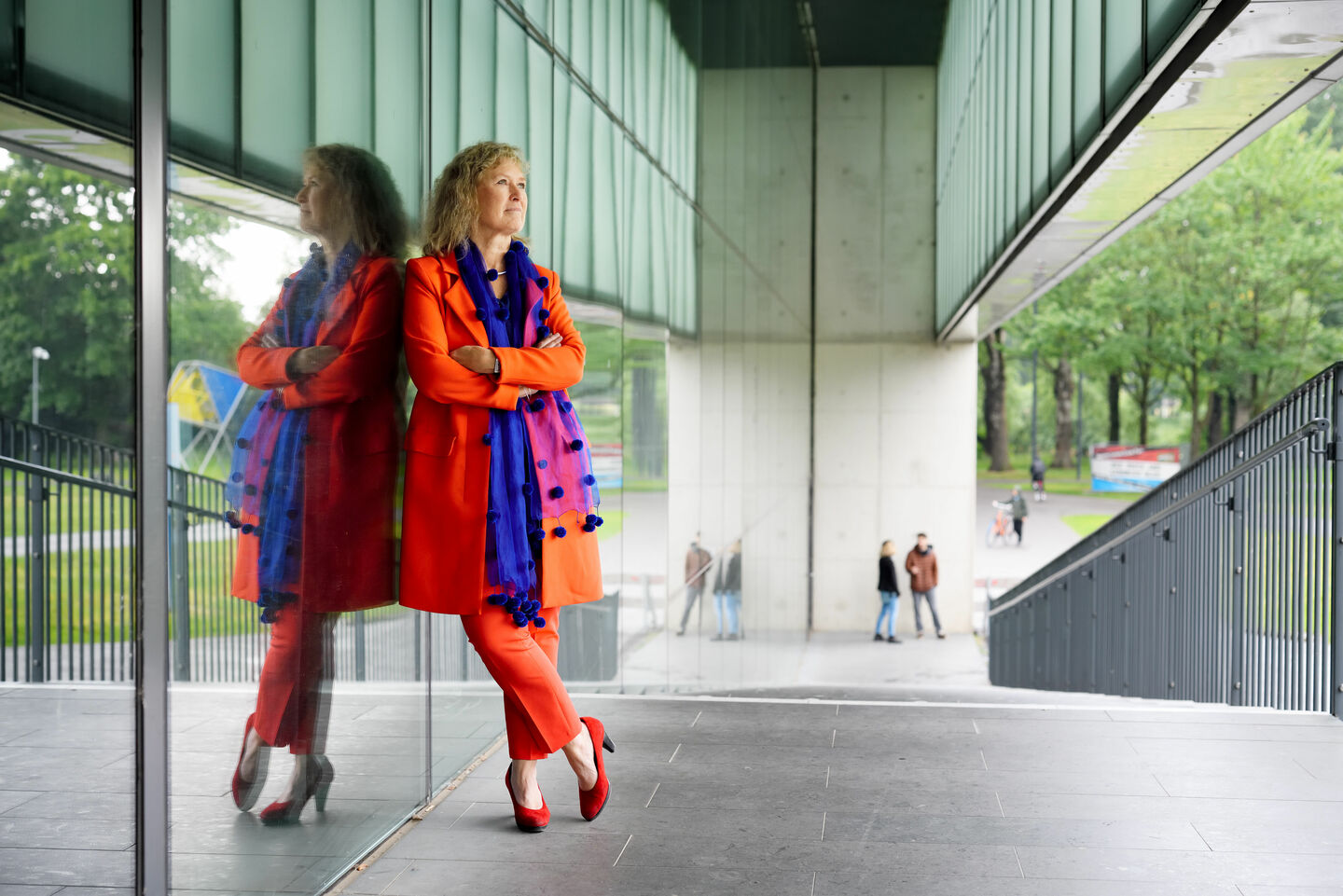
'I don't think I would have survived it had I been much younger'
Elphi Nelissen has spent eight years at the helm of the Department of Built Environment, occasionally guiding it through turbulent times. She looks back on it as a ‘challenging’ job, one that absorbed more of her time than she had expected but which also has brought about many positive changes. “The nicest thing about the deanship, in my view, is the opportunity it provides to allow people to grow and blossom.”
Elphi Nelissen’s powerful laugh fills the inviting-looking dean's office on floor 2 of Vertigo. Ornaments and art objects hang and stand before the window, the table is strewn with paperwork and books – among which stands a black-and-white photograph of her two sons aged at least ten years younger than they are now. Four mini-cyclists grace the edge of the desk - thank-you gifts given to guests at the opening of the wind tunnel. Its completion is one of her proud achievements during eight years as dean, she later tells me during our conversation.
She will soon be leaving this office, to make way for the new dean, Theo Salet. An energetic engineer, Nelissen will be taking up residence on floor 6, where she will take over the Building Performance chair from Jan Hensen. She will also be taking over his role as Academic Director of the post-Master's program Smart Buildings & Cities.
But about that laugh, it spilled out in response to the question whether she'd had any ambitions to become dean. “No, no, ha ha, not at all! Harry Roumen (former university secretary, ed.) invited me in for coffee and told me that at Built Environment they were looking for a new dean. All I was thinking was, ‘Who do I know who could do that?’ I had no idea at all that he had me in mind. When he said, ‘We mean you’, I was like, ‘Huh?!’ I felt honored. I took a moment to consider whether I wanted to do it and felt I could, and then I very deliberately said 'Yes'.”
Challenge
Looking back on those eight years, she soon mentions the word ‘challenge’. “I worked harder than I ever had before. I find it remarkable that people think that at universities there's never any great urgency, whereas in this organization the pressure is really very intense.”
While Nelissen had previously studied at TU/e and had often given guest lectures, it was a big step to make, from owning her own engineering consultancy to becoming departmental head at the university. “There was so much I had to learn in the first year. It is a large village, a complex organization. I had to get used to a very different culture, a different way of communicating. What do I mean by that? A very masculine organization, yes, a strutting culture - a keenness to go one better than the next guy. It was done without malice but that's how it was. In fact, I don't think I would have survived it had I been much younger; you need a certain degree of maturity to withstand it. At times it was hard going, but at some point you just have to think 'whatever’. At times I had the impression that I wasn't allowed to say what I actually wanted to say. If I went ahead and said it, I wasn't always thanked for it.”
Open and relaxed
In her department, she claims, the culture is not like this. “I think I have managed to create a very different culture here than prevails in the executive bodies of this university. I soon introduced a much more open and relaxed culture here. How? Simply by being myself. I like to surround myself with people who are critical and who can help bring about improvements. Come on, just tell me what it is and we'll try to make the best of it.”
Another legacy she is leaving behind: “I've brought greater professionalism to the department. If you make promises you have to follow through. Come on guys, a commitment's a commitment. It used to get my goat in the early days; things were promised and then I'd hear, ‘Yeah, I know, but I haven't done it’. That's something we have clearly managed to change.”
The question what she likes most about the deanship is not one she has to think about for long: “Allowing people to grow and blossom, that I could give them confidence, ‘You can do this’. And even though that didn't always involve following a traditional career path, it always turned out well. I am proud of having followed my intuition, and that I was never proved wrong.”
“In all three fields, education, research and valorization, we have made big progress in recent years,” the departing dean points out. “I say ‘we’ deliberately since I wouldn't be able to do anything here on my own, would I?” She praises the ‘dedication and hard work of all the lecturers,’ the support of the Executive Board, as well as the input of students. “We need to take the ratings and evaluations given by our students really seriously, and we do that here.” Now and then she also gets advice from home, from her own son, who is now starting his Master's at the department. “But I do put his comments into perspective, after all he is only one student, but his opinion is nearly always in line with my own perception. I find it so amusing that our students have an unerring sense of who the strong people are and where things are not going smoothly.”
Preconception
Something Nelissen has always found ‘tricky’ is the position of Built Environment at this university. “I still have the impression that people have the preconception that we don't do any serious fundamental research, while the facts tell a different story: of all the departments, we score the highest for Field-Weighted Citation Impact. Strange as it may seem, the idea that ‘it's all good stuff they're doing but we don't have to take them all that seriously,’ still persists among plenty of people with administrative responsibility. They sometimes forget Built Environment when they need people to join committees. I don't think it's done deliberately, but it does happen and it's a shame.”
Another reflection: “Design is not valued on a par with research. For example, it's a field in which it is difficult to secure a promotion. There's still so much to achieve in this respect.”
As well as the deanship, Nelissen had and still has more on her plate: she is the chair of the Social and Economic Council of Noord-Brabant, the driving force behind Brainport Smart Districts, a member of the Bouwagenda task force spearheading building sector innovation, and leads the Transition agenda in the area of circularity. “The funny thing is that everything comes together, from various vantage points and fields of knowledge. These are important arenas that offer the chance to make the world a brighter place. I try to use my knowledge on all kinds of fronts for the future of Brabant.”
How did she manage to combine all this? “Simply by working all the hours God sends. My diary is packed with appointments every minute of the day. Then evenings and weekends you have to read your documents, and write, and finish off tasks. I wanted to do it, and it was my ambition, but admittedly the balance was sometimes wrong. I don't blame anybody for that and I don't wish to complain about it, but it is an observation. I said ‘Yes’ to all those things because I thought they were good for this university and because I enjoyed the work. And I can say categorically that I still had time for my family and parties, and sports like sailing, jazz ballet and tennis.”
Circular vacation home
Together with her family, she is also spending her time building a vacation home in Friesland, which is ‘as circular as possible’. Waste wood is being incorporated into the facade, natural products are being used to make the insulation materials and no mortar is being used between the bricks. “A few years ago the circular economy was still something strange, but these days many people are supporting it. Similarly at this university, many departments are taking practical steps in this direction.”
Sustainability, energy and circularity are her specialisms and the subjects with which she has always had an affinity. Nelissen, who grew up in Maastricht, had a role model when she was young: her father. “He was very environmentally aware and, for example, grew his own vegetables in our garden, without using pesticides.” She laughs, ”But it took him a great deal of time to fish out the caterpillars. He didn't eat veal because the animals had such short lives, and as soon as he could install double-glazing, he did.”
“In my student house, too, I was always trying to educate my housemates. That they shouldn't leave the central heating on too high, if they were going away. I still make a mental note and switch off the light in rooms. Having said that, I'm also pragmatic; I'm not going to invest a great deal of time for a small gain. I separate the refuse but not down to the last one percent.”
Fantastic student time
Nelissen recalls her time as a student as being ‘fantastic’, she played a lot of sport and was active in various committees and associations. In 1977 she came to study at TU/e because she was keen to do ‘something in a hard science’, and Eindhoven was an obvious choice because her brother was already studying here. Expecting it to offer more ‘human aspects’, she opted for Architecture, Building and Planning. At that time it was still exceptional for a girl to go to a technical university. “But I liked that; I often make non-standard choices. As a girl, you really drew glances on campus and I can still remember walking through the city one time and thinking it strange that it wasn't like that there. That's when I said to myself, ‘Elphi, don't let this go to your head’.”
Nelissen, who in her time was TU/e's first woman dean, still notices preconceptions being made about women even now. “Often people are unaware they're doing it. To give an example, when evening lectures were being discussed it was said that we had to take young mothers into account. No one paid any thought to young fathers. Similarly, I always raise my hand in meetings whenever I see images in presentations that show only men.”
The professor in the Department of Built Environment finds it ‘fantastic and a great honor ’ to take over from Jan Hensen, whom she has known since her student days and who shares her specialist field. “What ambitions do I still have? It would be enjoyable to carry on doing the things I'm doing now and perhaps at some stage to create more space in my head and my diary to spend more time thinking.”
Strong board
She has complete faith in her successor. “I am trying to give him a head start by passing on my knowledge, but I can let it go. I am a big fan of his and I expect he'll make a great success of it. A strong board will soon be in place and the prognoses are good; I'm leaving the department in good financial health.”
To conclude, the question whether there are certain decisions she regrets. “Phew...no…not really. You make decisions based on the knowledge you have at the time, with the best of intentions. If you had known everything you might have handled certain things differently. But that's life, isn't it?”

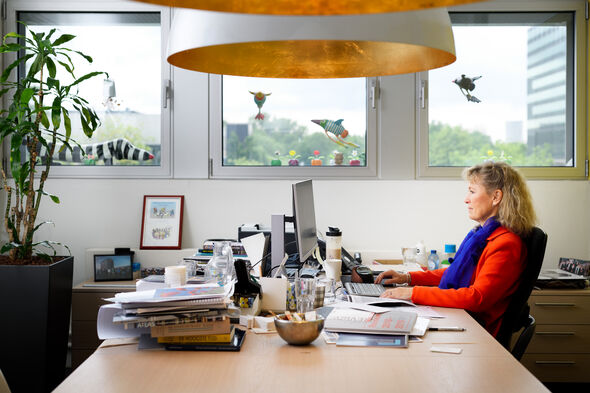
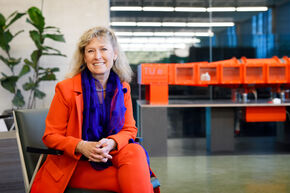
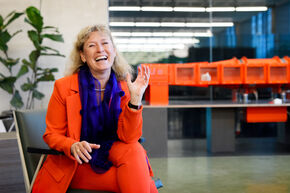
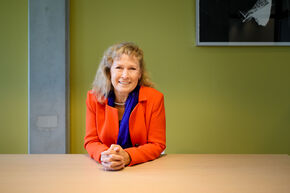
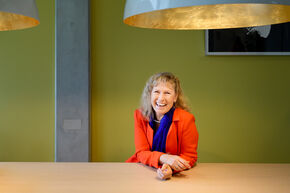
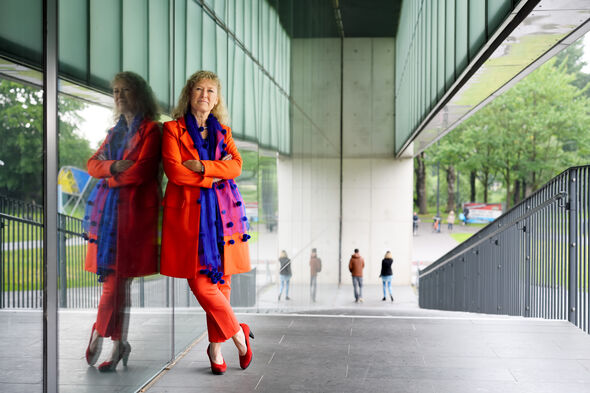
Discussion